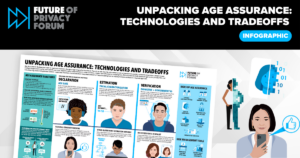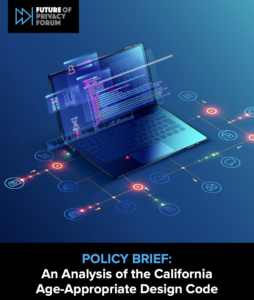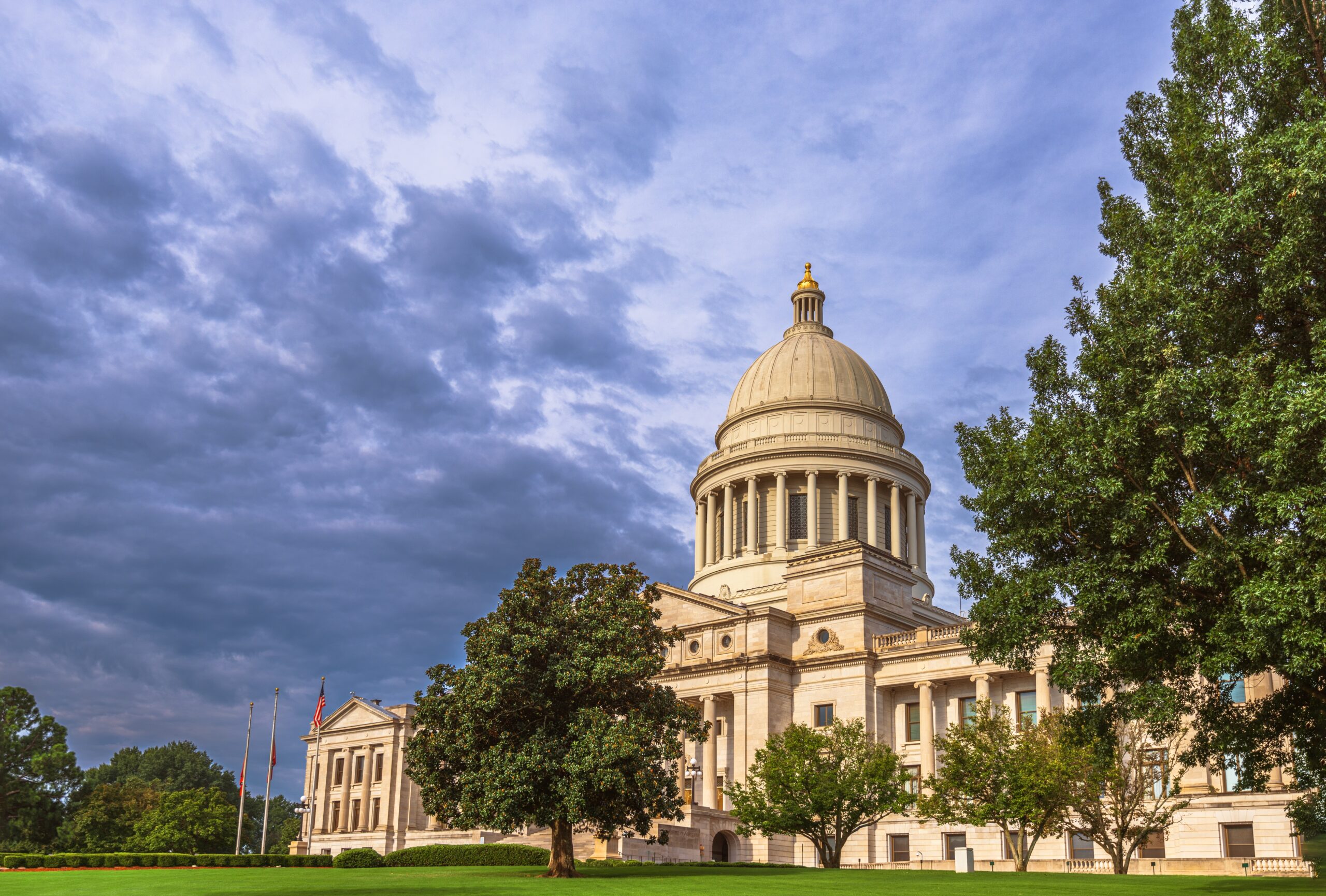Education is changing. New technologies are allowing information to flow within schools and beyond, enabling new learning environments and providing new tools to improve the way teachers teach and the way students learn. Data-driven innovations are bringing advances in teaching and learning but are accompanied by concerns about how education data, particularly student-generated data, are being collected and used.
The Future of Privacy Forum believes that there are critical improvements to learning that are enabled by data and technology, and that the use of data and technology is not antithetical to protecting student privacy. In order to facilitate this balance, FPF equips and connects advocates, industry, policymakers, and practitioners with substantive practices, policies, and other solutions to address education privacy challenges at both the K-12 and higher ed levels.
For more information and resources, please visit Student Privacy Compass, a one-stop shop for information, news, and analysis on maintaining student data privacy.
Featured
Annual DC Privacy Forum: Convening Top Voices in Governance in the Digital Age
FPF hosted its second annual DC Privacy Forum: Governance for Digital Leadership and Innovation on Wednesday, June 11. Staying true to the theme, this year’s forum convened key government, civil society, academic, and corporate privacy leaders for a day of critical discussions on privacy and AI policy. Gathering an audience of over 250 leaders from […]
Vermont and Nebraska: Diverging Experiments in State Age-Appropriate Design Codes
In May 2025, Nebraska and Vermont passed Age-Appropriate Design Code Acts (AADCs), continuing the bipartisan trend of states advancing protections for youth online. While these new bills arrived within the same week and share both a common name and general purpose, their scope, applicability, and substance take two very different approaches to a common goal: […]
FPF Experts Take The Stage at the 2025 IAPP Global Privacy Summit
By FPF Communications Intern Celeste Valentino Earlier this month, FPF participated at the IAPP’s annual Global Privacy Summit (GPS) at the Convention Center in Washington, D.C. The Summit convened top privacy professionals for a week of expert workshops, engaging panel discussions, and exciting networking opportunities on issues ranging from understanding U.S. state and global privacy […]
Amendments to the Montana Consumer Data Privacy Act Bring Big Changes to Big Sky Country
On May 8, Montana Governor Gianforte signed SB 297, amending the Montana Consumer Data Privacy Act (MCDPA). This amendment was sponsored by Senator Zolnikov, who also championed the underlying law’s enactment in 2023. Much has changed in the state privacy law landscape since the MCDPA was first enacted, and SB 297 incorporates elements of further […]
Little Rock, Minor Rights: Arkansas Leads with COPPA 2.0-Inspired Law
With thanks to Daniel Hales and Keir Lamont for their contributions. Shortly before the close of its 2025 session, the Arkansas legislature passed HB 1717, the Arkansas Children and Teens’ Online Privacy Protection Act, with unanimous votes. As the name suggests, Arkansas modeled this legislation after Senator Markey’s federal “COPPA 2.0” proposal, which passed the […]
FPF Publishes Infographic, Readiness Checklist To Support Schools Responding to Deepfakes
Today, the Future of Privacy Forum (FPF) released an infographic and readiness checklist to help schools better understand and prepare for the risks posed by deepfakes. Deepfakes are realistic, synthetic media, including images, videos, audio, and text, created using a type of Artificial Intelligence (AI) called deep learning. By manipulating existing media, deepfakes can make […]
FPF Releases Report on the Adoption of Privacy Enhancing Technologies by State Education Agencies
The Future of Privacy Forum (FPF) released a landscape analysis of the adoption of Privacy Enhancing Technologies (PETs) by State Education Agencies (SEAs). As agencies face increasing pressure to leverage sensitive student and institutional data for analysis and research, PETs offer a unique potential solution as they are advanced technologies designed to protect data privacy […]
FPF Releases Infographic Highlighting the Spectrum of AI in Education
To highlight the wide range of current use cases for Artificial Intelligence (AI) in education and future possibilities and constraints, the Future of Privacy Forum (FPF) today released a new infographic, Artificial Intelligence in Education: Key Concepts and Uses. While generative AI tools that can write essays, generate and alter images, and engage with students […]
FPF Celebrates Safer Internet Day with Newly Released Encryption Infographic
Future of Privacy Forum (FPF) is thrilled to celebrate Safer Internet Day 2025 with the release of a new infographic, “Encryption Keeps Young People Safe.” Safer Internet Day is an annual event and part of a larger global mission to create a safer online environment, especially for young people. FPF’s new infographic explains how encryption […]
FPF’s Year in Review 2024
With contributions from Judy Wang, Communications Intern 2024 was a landmark year for the Future of Privacy Forum, as we continued to grow our privacy leadership through research and analysis, domestic and global meetings, expert testimony, and more – all while commemorating our 15th anniversary. Expanding our AI Footprint While 2023 was the year of […]















